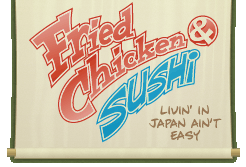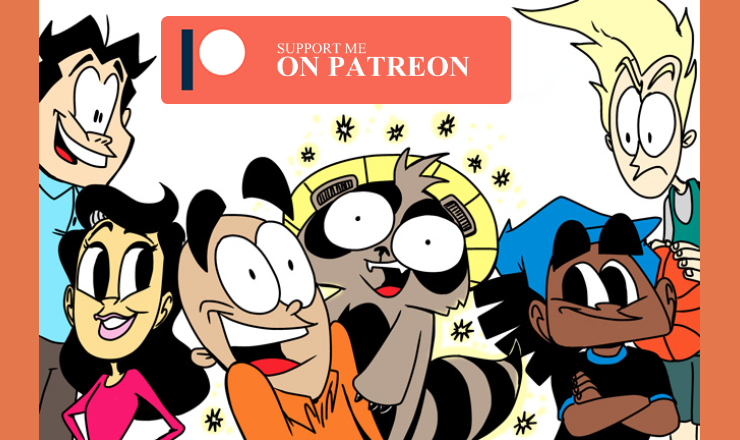Two Words That Make Success Easier
/This is what it takes to get where you want to be.
Photo by Andrew Neel on Unsplash
Don’t be fooled by quick and easy success stories. Making it big takes a lot of hard work.
It’s even more hard work than you think because success involves getting out of your own way.
I know you want to believe you can stay the same, and luck will bless you and suddenly change your life for the better, but this is juvenile thinking. Growing up and realizing that you have to put in time and effort to succeed is significant.
Success takes two essential ingredients most people run away from like the plague—even if they know working hard is a primary key.
I’ve lived a pretty good life, worked as a writer, artist, and teacher, and even traveled the world. Without two truths, I could have never done all that I did and plan to continue doing in the future.
If you can get navigate pushing through these two words, success can be more effortless for you to attain.
1. Failure
As a writer and cartoonist, naturally, I’m a fan of animated films, especially ones made by Disney. You may feel like everything the company does has always been a success.
So not true.
The Walt Disney Company has had successes and failures over its almost 100-year history. Slow times and fast. But it kept figuring out ways to keep going because they understood disappointment is a part of taking risks and doing business. Walt ingrained this idea into the studio.
Before Walt Disney started the company with his brother Roy, an editor at a newspaper he worked for told him he lacked imagination and had no good ideas. I bet that pissed him off a bit but gave him the fuel needed to prove him wrong.
“I think it’s important to have a good hard failure when you’re young… Because it makes you kind of aware of what can happen to you. Because of it I’ve never had any fear in my whole life when we’ve been near collapse and all of that. I’ve never been afraid.”
-Walt Disney
You have to be willing to try and fail. Yes, you may look like an idiot or embarrass yourself, but what you’ll learn will help you make new and different choices next time.
If you look at failure as a part of the learning process, something you need to get better and discover what works, you can use it.
People who never fail never really try.
You don’t have to like it, but make friends with it so you can reach your goals.
2. Discomfort
No one knows how to face discomfort like stand-up comedians. I may love writing humor in a comic strip format and have to face the possibility my readers won’t laugh at the joke, but I don’t have to meet them in person.
One of my favorite comedians is Jerry Seinfeld. Not just because he was able to get a hugely successful TV show with his name on it, but because he has a unique style and delivery, and most importantly, he never uses curse words.
That’s tough to do.
After his first set doing stand-up as a young comedian on the circuit, I read that it didn’t go well. Seeing the audience made him freeze when he set foot on stage, and he was booed off.
Think about it. Seinfeld could have said “Screw this!” packed his bags, and left that world forever.
Instead, he decided to get over himself and make success as a comedian more important than his discomfort on stage. I bet he could tell it was something he could get over if he practiced more. If writing jokes gets easier the more you do it, so can dealing with standing up on stage.
Of course, we all know how that turned out. Jerry Seinfeld was right to keep working through the discomfort.
Truthfully, it’s still uncomfortable for me to put my work out there, but I’ve learned to get used to that awkward feeling. You have to know that not being comfortable means you’re growing. The skills you’re learning, or the way you’re thinking about something new are being stretched.
Even though that’s a good thing, it’s only up to you to decide to keep facing discomfort head-on.
Make a point to try new things to get comfortable with being uncomfortable.
Talk to random people on the street and ask them questions about their life, volunteer to present new ideas during meetings at work, put your writing out online wherever you can, and brace yourself for criticism.
Doing what you fear will build up your tolerance for it and make it easier over time.
“According to most studies, people’s number one fear is public speaking. Number two is death. Death is number two. Does that sound right? This means to the average person, if you go to a funeral, you’re better off in the casket than doing the eulogy.”
- Jerry Seinfeld
Getting good is the real secret
The main reason to grow more decisive in dealing with failure and discomfort is to get better at doing your craft. People want to read, watch, and hear good quality work, and if you make stuff and make it well, they’ll notice.
It’s incredible how easy it can be to give up because we can’t handle things not going the way we think they should. You will win when you give yourself the space to fail and feel like crap, but get back up and keep making—even if your success takes years.
If there’s one thing we can’t deny, it’s high-quality work. Good writing, beautiful music, and clever ideas get noticed, even if we’re unsure why it’s so great.
A combination of daily work, to get better, then facing your fears to put it out there can make a difference. When one of my articles gets a lot of attention or a comic strip receives many positive comments, I know I connected with people.
Even if that doesn’t happen for every piece, I put out, I know continuing to produce, learn, and iterate will help give me more chances at success.
It’s never just luck, even though luck can help. Working through setbacks and challenges will get you where you want to be in the long run.
Your success in life is proportional to how much risk and discomfort you can handle. Now get out there and fail more.
Want more? If you’re struggling with doing original work, click here to join my (free) email list, and through comics, articles about culture, and living your truth, you can upgrade your mindset and share your art with the world.








